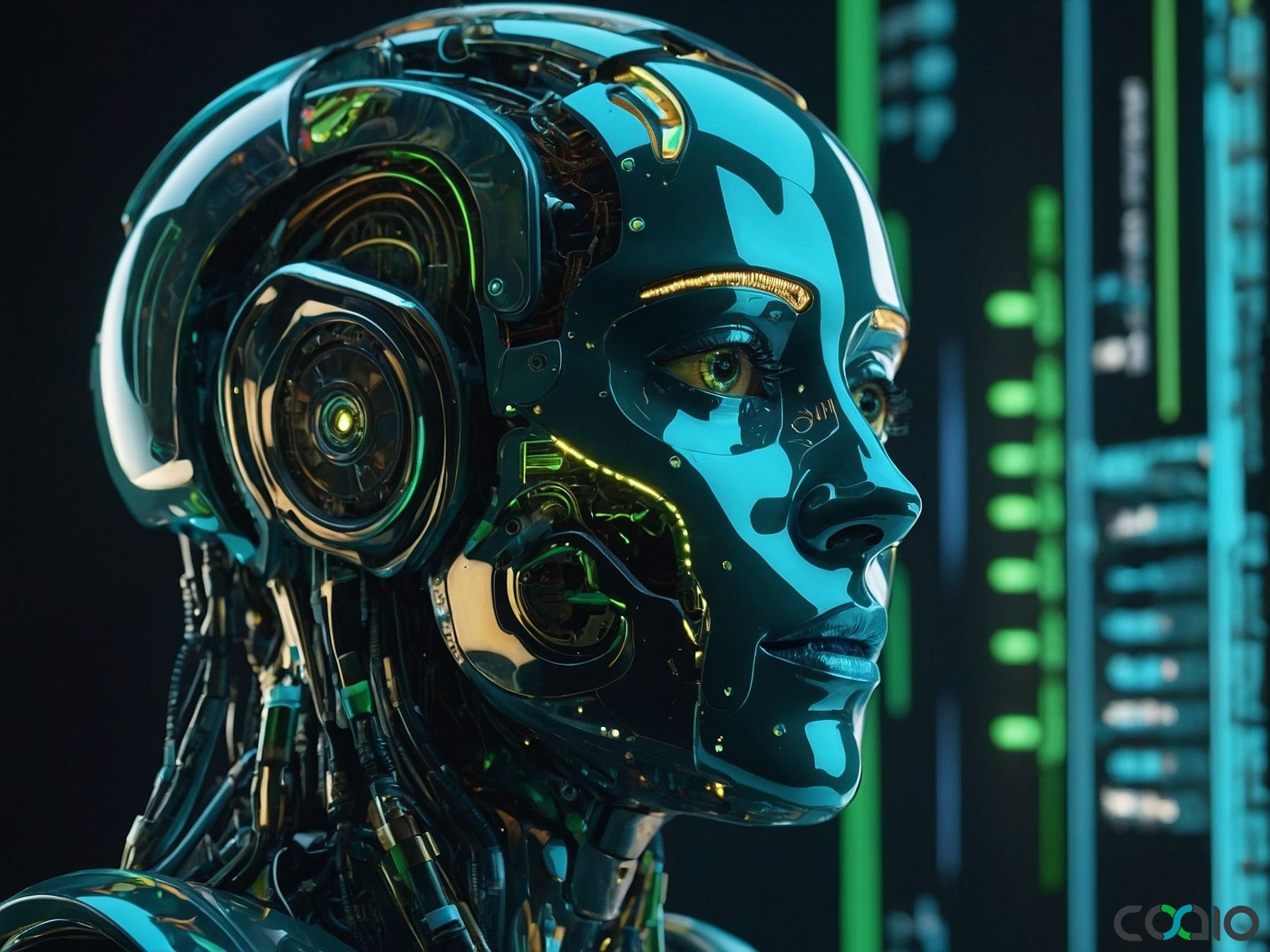
Breaking Developments in Software Innovation: AI Ethics, Quantum Leaps, and Startup Struggles
The tech world is buzzing with fresh developments as we dive into October 2025, a period marked by rapid advancements and ethical quandaries in software development. From AI-generated deepfakes to quantum computing breakthroughs and policy shifts affecting startups, today’s landscape highlights both the potential and pitfalls of creating cutting-edge software. This article explores these key stories, drawing connections to how software engineering is evolving amid regulatory pressures and technological leaps. With implications for developers, businesses, and innovators, these updates underscore the need for ethical, efficient software solutions in an increasingly digital world.
AI Deepfakes: The Ethical Minefield in Software Creation
In recent weeks, the software development community has been grappling with the darker side of AI technology, particularly the rise of deepfake videos. A poignant example emerged from TechCrunch, where Zelda Williams, daughter of the late comedian Robin Williams, publicly pleaded for people to stop sharing AI-generated videos of her father. This incident, detailed in an article published on October 7, 2025, highlights the unchecked proliferation of deepfake tools—software algorithms that use machine learning to manipulate images and videos with startling realism Read more.
Deepfakes are powered by sophisticated software frameworks, often built on neural networks and generative adversarial networks (GANs). These tools require extensive coding, data processing, and ethical considerations during development. The ease of access to such software via open-source platforms has democratized creation but also amplified misuse, leading to defamation, misinformation, and emotional harm. Developers must now incorporate robust safeguards, like watermarking and authentication protocols, into their code to mitigate these risks. This evolution in software design emphasizes the need for proactive ethical guidelines in AI programming, potentially reshaping how teams approach project management and risk identification in software development pipelines.
As software engineers push boundaries, the deepfake debate also touches on broader industry trends. For instance, the integration of AI in everyday applications—ranging from social media filters to video editing software—demands more rigorous testing and user consent mechanisms. This isn’t just about fixing bugs; it’s about building software that aligns with societal values. The ongoing discourse could influence future regulations, compelling developers to prioritize privacy-focused coding practices from the outset.
Quantum Computing’s Impact on Software Development
Shifting gears to the frontiers of physics and computing, the 2025 Nobel Prize in Physics was awarded for groundbreaking work in macroscale quantum tunneling, as reported by Ars Technica on October 7, 2025. Laureates John Clarke, Michel H. Devoret, and John Martinis developed an electrical circuit-based oscillator on a microchip, paving the way for practical quantum computing applications Read more. This achievement is a game-changer for software developers, as quantum systems promise to solve complex problems that classical computers can’t handle efficiently, such as optimizing algorithms for cryptography, drug discovery, and large-scale data analysis.
Software development for quantum environments involves specialized programming languages like Qiskit or Cirq, which allow developers to write code that manipulates qubits rather than traditional bits. This requires a paradigm shift in how software is designed, tested, and deployed. For example, quantum algorithms must account for phenomena like superposition and entanglement, demanding new debugging tools and simulation software to predict outcomes. As quantum hardware becomes more accessible, startups and established firms are racing to develop compatible software ecosystems, but challenges like error rates and scalability remain.
This Nobel win could accelerate investment in quantum software tools, fostering collaborations between physicists and coders. Developers might soon use quantum-enhanced software for tasks like supply chain optimization or AI training, but it also raises questions about energy efficiency and accessibility. The intersection of quantum tech and software development highlights the need for interdisciplinary teams that can navigate these complexities, ensuring that innovations translate into real-world applications without overwhelming resources.
Policy Shifts and Funding Cuts: A Blow to Software Startups
On the policy front, a significant story from TechCrunch on October 7, 2025, reveals that the Trump administration’s Department of Energy is proposing to slash billions in grants previously awarded to companies like GM, Ford, and numerous startups Read more. This move disproportionately affects software-focused startups, which rely on such funding for developing innovative technologies, including AI, electric vehicle software, and green energy solutions. The cuts could stifle progress in areas like autonomous driving systems or smart grid software, where startups are at the forefront.
For software developers in the startup ecosystem, this funding uncertainty means tighter budgets for tools, talent, and R&D. Many startups depend on grants to build prototypes, conduct competitor research, and manage projects effectively. Without this support, teams might scale back on ambitious software projects, potentially delaying advancements in areas like machine learning models for predictive analytics. This situation underscores the vulnerability of software development ventures in a politically charged environment, where policy decisions can disrupt entire innovation pipelines.
The ripple effects could extend to global outsourcing practices, as companies seek cost-effective ways to continue development. Startups might turn to international partners to maintain momentum, emphasizing the importance of efficient, high-quality software delivery. Despite these challenges, resilient developers are adapting by focusing on lean methodologies and agile project management to maximize limited resources.
Tesla’s EV Software: Balancing Cost and Innovation
While not purely a software story, Tesla’s announcement of standard-range Model 3 and Model Y vehicles, as covered by Ars Technica on October 7, 2025, has implications for automotive software development Read more. These models feature smaller batteries and reduced features, aiming to cut costs, but they still rely on sophisticated software for functions like battery management, autonomous driving assists, and over-the-air updates. This evolution reflects how software optimization can make electric vehicles more accessible, even as hardware constraints are imposed.
In software terms, Tesla’s approach involves refining algorithms to maintain performance with less hardware, such as using AI-driven predictive analytics to manage energy consumption. Developers in this space must balance cost reductions with user experience, ensuring that software updates don’t compromise safety or functionality. This trend could inspire broader innovations in embedded software systems, where efficiency is key for emerging technologies like IoT devices and smart homes.
As the EV market grows, software developers are increasingly vital in creating scalable, user-friendly interfaces. This interconnects with other news items, like COVID vaccine access systems reported by Ars Technica on October 7, 2025, which rely on software for logistics and data tracking Read more. Similar to EV software, health tech demands reliable, adaptive coding to handle real-time data, highlighting the cross-industry relevance of strong software practices.
In wrapping up this exploration of software development’s latest twists, imagine a world where innovative ideas flourish without the burdens of technical hurdles. That’s the essence of forward-thinking partnerships that streamline development, turning bold visions into reality with minimal fuss—much like how strategic outsourcing can empower creators to focus on what matters most.
About Coaio
Coaio Limited is a Hong Kong-based tech firm that specializes in outsourcing software development and building expert teams in Vietnam. We offer comprehensive services including business analysis, competitor research, risk identification, design, development, and project management, delivering cost-effective, high-quality software solutions for startups and growth-stage companies. Our user-friendly designs and efficient tech management cater to clients in the US and Hong Kong, helping you navigate complex projects with ease and confidence. By partnering with us, you can minimize risks and focus on your core vision, making software development a seamless part of your success story.
 English
English
 Français
Français
 Español
Español
 廣東話
廣東話
 中文
中文
 日本語
日本語
 한국어
한국어
 العربية
العربية
 Deutsch
Deutsch

